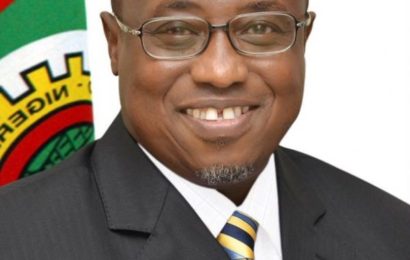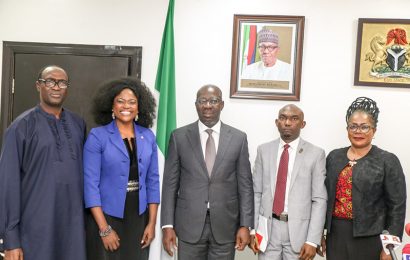
By Moses Ebosele, ebosele@hotmai.com —

To successfully navigate fuel subsidy removal challenges, some stakeholders in the automobile, oil and gas sectors have called on Nigerians to take advantage of alternative fuel.
They made the call at the 2023 Nigeria Auto Journalists Association (NAJA) annual training workshop held in Lagos at the weekend.
Participants analysed various perceptions and perspectives on alternative fuel and its economic benefits.
The Chairman, National Gas Expansion Programme (NGEP), Ministry of Petroleum Resources, Dr. Mohammed M Ibrahim, mni, urged Nigerians to embrace Autogas as part of measures to ease Foreign Exchange (Forex) scarcity, create millions of Jobs and lower transportation cost.

According to Dr Ibrahim, Autogas scheme will lead to economic growth development; technology transfer for Autogas Conversion, adding that 5.6million average man-hours is required per annum to convert Autogas vehicles.
In his presentation titled: ‘Fuel Subsidy Removal: Autogas/Electric Vehicles As Alternatives’, Ibrahim said: “Indeed, Autogas or the use of Gas (LPG/CNG/LNG) as a fuel for the mobility sector is the immediately available alternative to the conventional white products. Globally, autogas as a fuel of choice for the mobility sector has risen over 40%.Autogas powers the largest number of vehicles running on alternative fuels.”
Speaking in a similar vein, Executive Chairman/Founder, FUNTAY, Olufunso Amoo, and Chief Executive Officer/Founder, Creek Transitway Ltd, Elijah Wisdom confirmed that some transporters have converted their trucks, advising others to do same.
According to Ibrahim, car manufacturers are switching to direct injection engines that produce substantially lower emissions, adding, “In fact, 8 of the 10 largest car manufacturers produce LPG cars. With the steady increase in the use of autogas, the question would be, how sustainable are the world reserves to meet demand?
“The global natural gas resource-base is vast and widely dispersed geographically. Conventional recoverable resources are equivalent to more than 120 years of current global consumption, while total recoverable resources could sustain today’s production for over 250 years.”
Ibrahim said Nigeria is endowed with vast natural gas reserves, and that the NGEP is conceived and designed to serve as a catalyst for adding value to the reserves.
He said, “Autogas is the only fuel that can act as a bridge between our existing oil habits and a cleaner, less oil intensive future. To begin with, it contains more hydrogen and less carbon, so it is both better for the planet and also more easily refined into hydrogen (for fuel cells).”
The NGEP Objective, he said, is “To reinforce and expand gas supply, as well as stimulate demand in the country through the effective & efficient mobilisation and utilisation of all available assets, resources and infrastructure in the country.
“From the onset, the NGEP Committee recognised and facilitated the emplacement of enablers to deepen the penetration and success of the Autogas Programme, including: I. Review of existing regulations and removal of bottlenecks II. Carried out audit of existing retail-out for co-location of multi-fuelling system III. Fiscal Incentives (facilitate the speedy processing of Import Duty Exemption Certificate) IV. Established Partnership with Private and Government Institutions to build Capacity on Autogas conversion technicians V. Securing of single digit intervention fund for the construction of required infrastructure VI. Domestication of the Autogas conversion technology through reverse engineering.”
He said, “The huge gas potential of Nigeria clearly offers an opportunity for effective support of the economic sustainability of Nigeria; Accelerated optimisation of the extensive gas value chain is the key to unlocking the opportunities inherent in gas resource as an enabler for economic sustainability; NGEP schemes are being driven to eEnsure that gas is optimally used to provide cleaner fuels for a greener Nigeria; promote mitigation against climate change; secure Nigeria’s energy mix in the short to longer term basis.”
NGEP, he said, shall deliver all its strategic objectives through optimal performance of all the project schemes of the programmes, adding “The precarious and daunting situation currently experienced in the downstream petroleum sector is a bitter reality that requires the urgent attention of all us present in this hall and the only alternative in the short, middle and long term is gas. Nigeria being richly endowed with abundant natural gas can leverage on this resource as a catalyst for economic growth and the transport sector is not an exception.”
On how Nigeria compares in terms of readiness to deploy CNG for automotive applications, he said there are some enablers required from the government that include, “Regulatory: The establishment and enforcement of sound guidelines, codes and standards, as well as the use of legislative, regulatory and/or judicial mandates to help deepen penetration of NGVs; Fiscal: Fuel price differentials and credit lines, as well as custom duty and tax exemptions. Also, tax incentives to corporations to invest in the CNG programme; Widened price advantage by removal of PMS subsidy: Subsidy on gasoline erodes the long-term economic benefit of CNG.
“Globally, the price differential is a key success factor and ranges between 33% (USA) and 75% (Iran). 4. Infrastructure: Construction of domestic distribution networks, as well as CNG processing and fuelling infrastructures in strategic locations following the example of Argentina. A lot still needs to be done regarding CNG infrastructure deployment in Nigeria.”
Director General, National Automotive Design and Development Council (NADDC), Jelani Aliyu, MFR, who was represented by Felicia Oyebolu, Deputy Director & Head Of Unit, Information & Public Relations Unit, assured stakeholders of adequate support and protection.
Executive Director, Automotive Business, Stallion Group, Mr. Rajinder Malhan, used the opportunity of the conference to urge the Federal Government to take definate position on the auto policy.
Also speaking at the event, General Manager, Stallion NMN Limited, Amit Sharma commended NAJA for putting the event together, ’It is wonderful to see the passion you have for motoring and your determination to keep abreast of trends in the sector from the issue of alternative fuels to development and innovation in the sector’.
According to him, Electric Vehicle policies govern everything from the duties and tariffs payable on EVs brought into the country.
In his welcome address, Chairman of NAJA, Mike Ochonma said the training is aimed at equipping the motoring Journalists with necessary reportorial skills and tools to informs the reading public.




